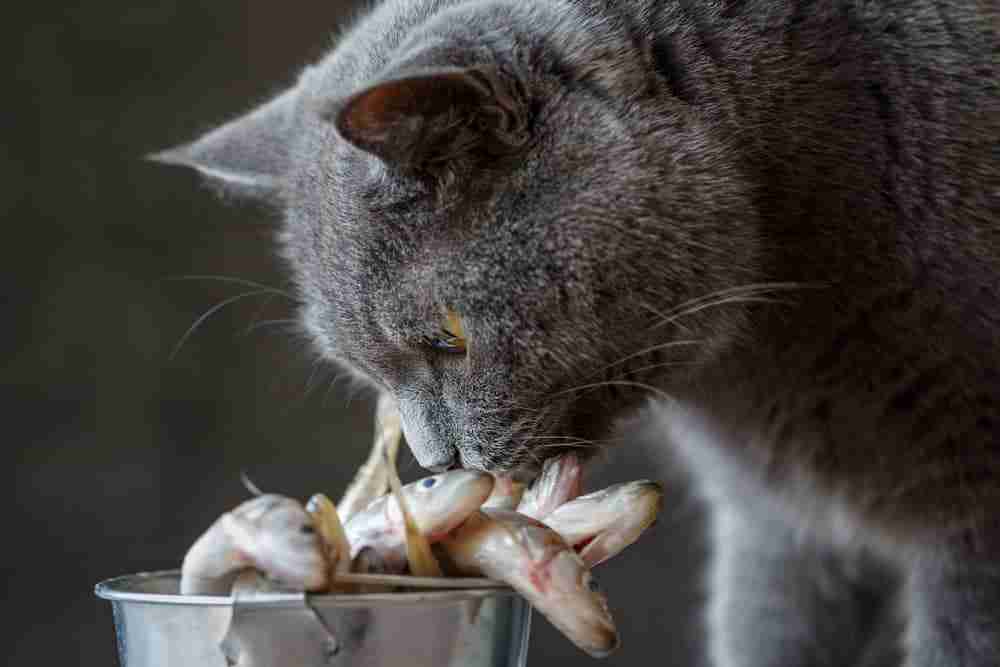Can cats eat fish? Can cats eat fish every day? What about raw fish? Your cat can eat fish every day but it is not recommended. Read on to find out more…
We all grew up watching cartoons of cats like Heathcliff, chasing after fish. It’s unclear how the cat and fish connection as its favorite food emerged, but cats sure do like a piece of fresh seafood, but can cats eat fish everyday?
It’s no wonder cat food manufacturers flavor kibble and other meaty treats with salmon and tuna flavors – it drives your feline wild. We’re sure your cat can’t get enough of fish, and they’ll sit around and beg for food when you pull out a tray of sushi for your dinner.
Can you feed your cat fish every day? Can cats rely solely on a fish diet?
Is Fish A Healthy Option For My Cat?
Chances are you grew up with your mom telling you fish was healthy food, and it’s good for your eyes. The reality is mom isn’t wrong. Research on fish oils’ positive impact on human health shows it has several benefits in enhancing the health of your skin, eyes, and organs.
However, the ocean environment changed a lot over the last few decades since your parents were youngsters. Today, the ocean is dealing with a massive pollution problem due to the impact on the water from heavy industry.
Companies treat the ocean like a dumping ground because they can afford the fines if they get caught. As a result, toxins like mercury and PCBs float around in the water column, and they come in contact with fish.
Large ocean fish with predatory habits are at the top of the food chain. Fish like yellowfin tuna can reach hundreds of pounds in weight. As they feed on other smaller fish species, they absorb toxins like mercury into their flesh.
Thus, eating that plate of California rolls with fresh tuna isn’t as healthy for you as it was twenty or thirty years ago. Most doctors only recommend humans eat fish once or twice a week to avoid overexposure to heavy-metal contamination.
Now, consider the average human is around 150-pounds in bodyweight – that’s ten times that of a cat. As a result, feeding your cat some fish every day could end up with them accumulating heavy metals like mercury in their system, resulting in health issues.
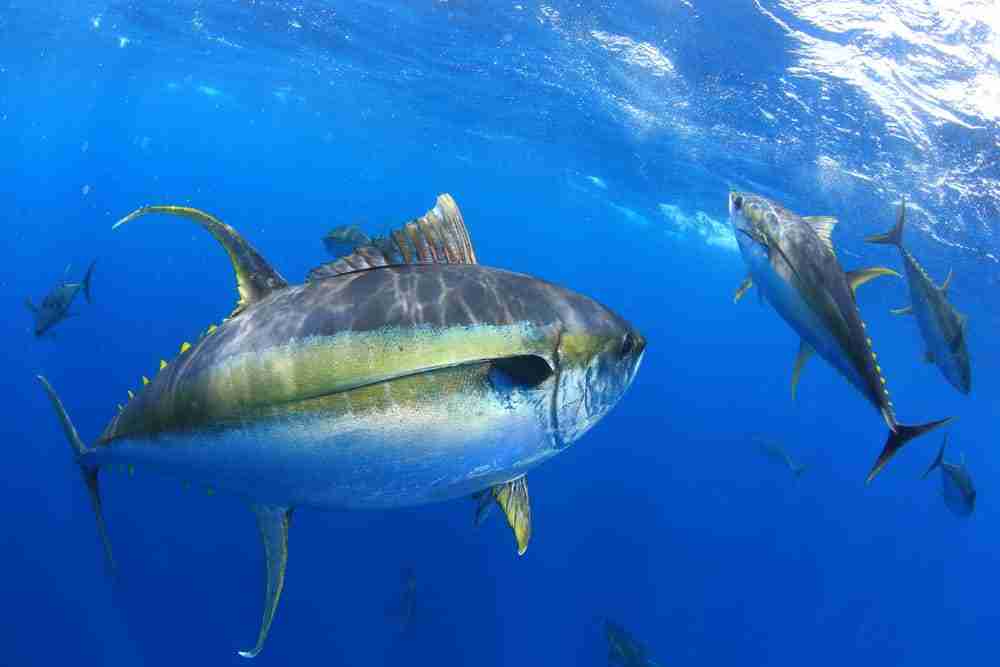
Heavy Metals, Histamines, And Toxins In Fish
Consumption of heavy metals like mercury and cadmium is a severe concern for human and feline health. However, that’s not the only problem with feeding your cats too much fish in their diet. Fish contains histamines, and these compounds ward off inflammation in the body.
However, overconsumption of histamines from fish in your cat’s diet can have an adverse effect, causing the onset of allergies in your cat. Many cats are allergic to the histamines in fish, causing health issues with their skin and fur.
Speak to your vet, and they’ll probably tell you fish is responsible for causing more allergies and auto-immune disorders in cats than any other food.
Salmon is a popular “health” food around the world for humans. It’s also a favorite ingredient in cat food. However, to keep costs low, pet food manufacturers use dangerous chemicals in the farming procedure to ward off parasites and disease in the fish.
One of the most controversial chemicals used in farming salmon is “ethoxyquin.” This Bayer/Monsanto chemical has a toxic effect on human and pet health and is commonly used in fish farming.
Exposure to harmful chemicals, histamines, and heavy metals in your cat’s diet can lead to the development of various health issues, such as hyperthyroidism in senior cats.
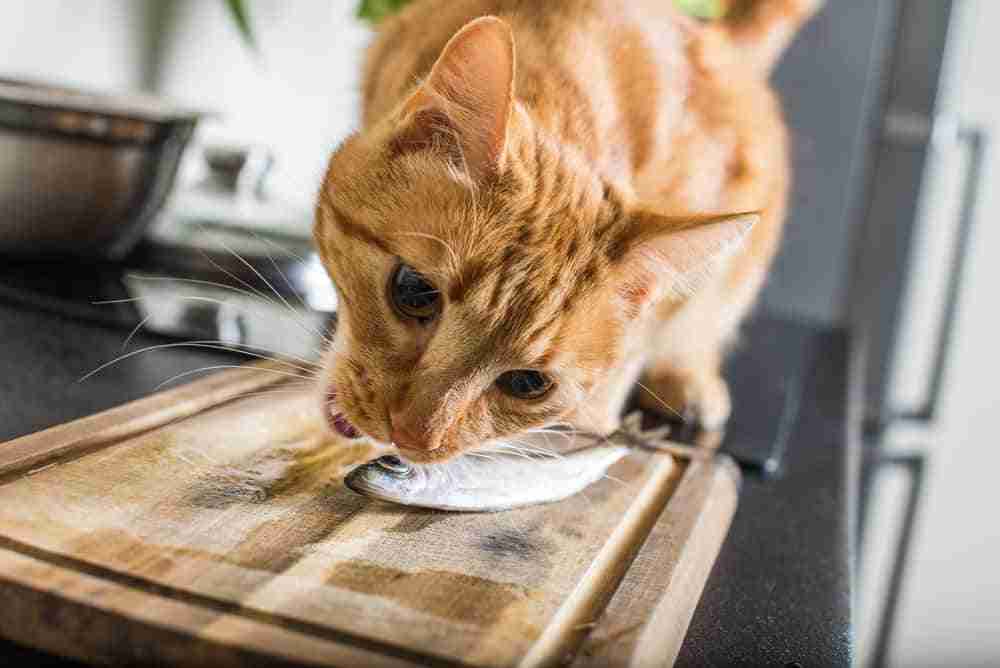
Fish Oils – The Health Benefits Without The Risk
Fish oil is the best way to get all the advantages of eating fish without any toxic effects. Fish is so healthy due to the high-fat content in fish, especially dark-fleshed fish like tuna and salmon. These species of fish are rich in Omega-3 essential fatty acids (EFAs).
Omega-3 consists of eicosapentaenoic acid (EPA), and docosahexaenoic acid (DHA). Both of these EFAs have a potent effect on your health. When manufacturers produce fish oil, they filter out heavy metals and other toxins, leaving you with pure oil and no health risks.
Many cat food manufacturers add omega-3 fish oils to kibble formulations as the fat content in the food. Fish oils can provide senior cats with relief from arthritis pain and stiffness. The oils have several positive benefits for your cat, from brightening their skin and coat to keeping their eyes healthy.
However, many food manufacturers use low-quality fish oils, and some contain oils treated with ethoxyquin. Never add extra fish oil to your cat’s diet. Cats can only handle so much fat in their diet (around 10% of total nutrient intake).
Adding extra fish oil ends up causing digestive issues like diarrhea and excessive flatulence.
What’s The Best Fish To Feed My Cat?
If you’re going to feed your cat some fish, keep it to once or twice a week as a treat. Obviously, it’s a better choice to feed your kitty smaller fish like sardines and, or freshwater species wherever possible. White-flesh fish like cod is smaller than the giants of the sea like tuna.
As a result, they have fewer accumulated toxins and heavy metals in the flesh, making them safer for cats to eat. Still, it’s not a good idea to feed your cat fish frequently. There are several issues with adding it to your feline’s diet.
Several premium cat food manufacturers are offering fish-based canned foods for your kitty. These foods are in the gourmet range of most brands, and you can expect to pay up to 30% more for these foods over kibble and other wet foods.
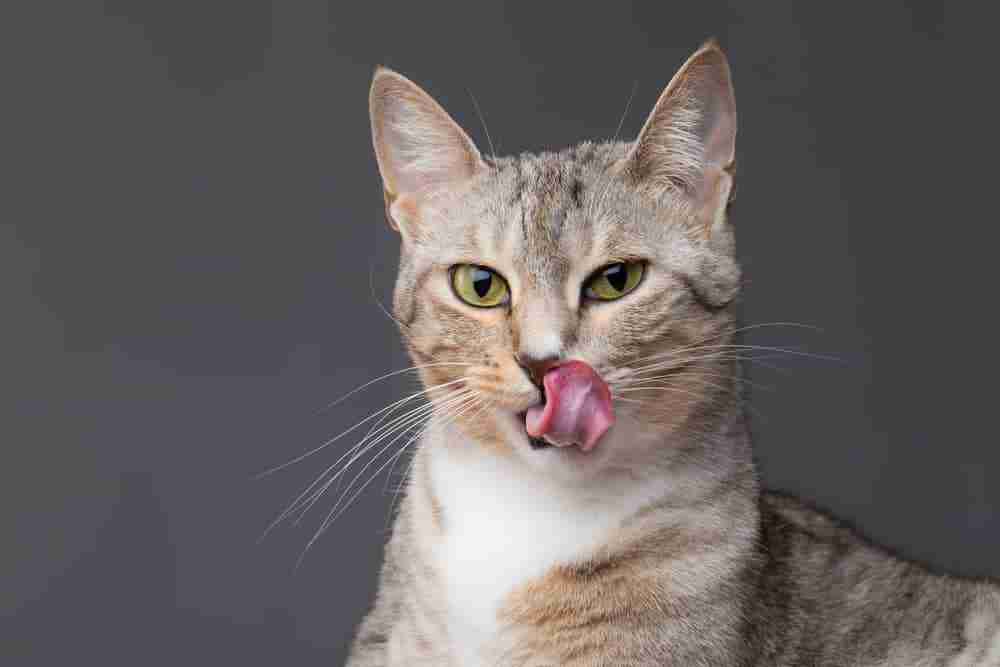
Fish – Part Of A Balanced Diet For Your Cat
If you feed your cat fish too often, they might start refusing other food, like their kibble or canned food products. Some cats are finicky eaters, and they’ll starve themselves in protest until you cave into their demands for fish every day.
Every cat owner knows that when your cat starts refusing food, they can be stubborn, and they might not eat at all. If that’s the case, your kitty could wind up in a health disaster quickly. Cats need to eat, or they develop a dangerous health disorder, “hepatic lipidosis.”
If left untreated and undiagnosed, the condition diminishes your cat’s protein stores, causing fat accumulation in the liver and eventual liver failure.
We already discussed the health drawbacks of including too much fish in your cat’s diet. However, there’s an additional factor involved with feeding your cats fish every day – the cost. Giving a kitty a serving of fish every day adds hundreds of dollars to the annual cost of feeding your pet.
If you want to add the health benefits of fish to your cat’s diet without breaking the bank or your cat’s eating habits, speak to your vet. Your vet can nominate an approved fish oil supplement for your feline that won’t damage their digestive health.
It’s also important to ensure you’re feeding your cat vet-approved fish food that comes from reliable pet food manufacturers and trusted brands.
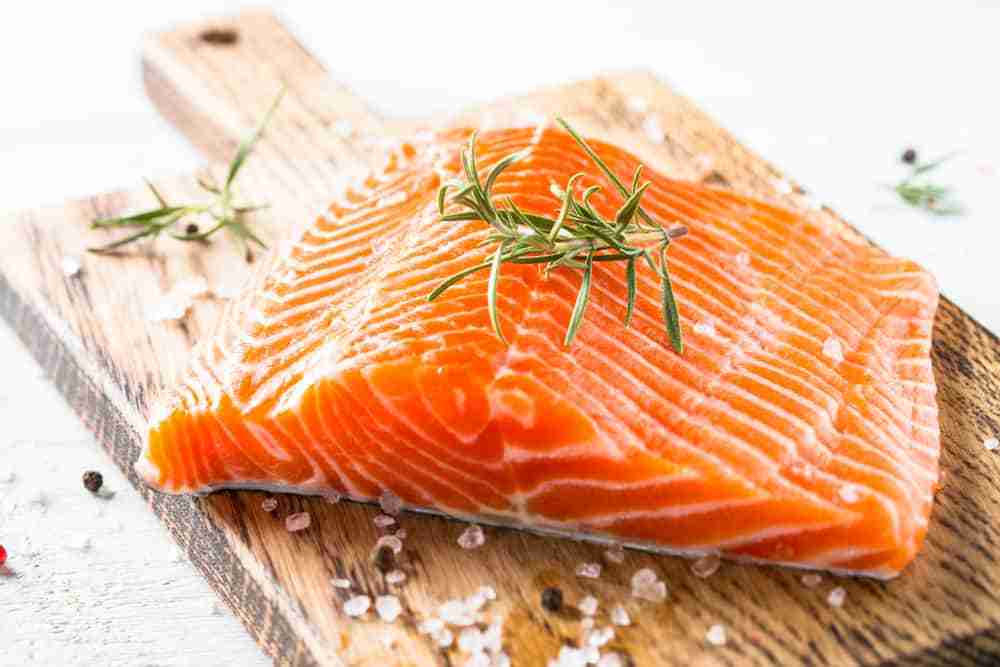
In Closing – Avoid Feeding Your Cat Fish Unless it’s a Treat
While fish might not be as healthy as it was back in our parent’s day, it still has beneficial value in your cat’s diet. However, ensure that your fish comes from sustainable fisheries, and choose light-flesh fish over dark-fleshed fish for your cat’s meals.
Fish is an awesome treat for your cat, and they’ll go wild for it, but make sure you don’t feed it to them two days in a row, or you might run into food aversion issues with your cat’s normal diet. A good way to give your cat a fishy treat and get them drinking more water can be to give them tuna juice. Many cats find this treat irresistible…
